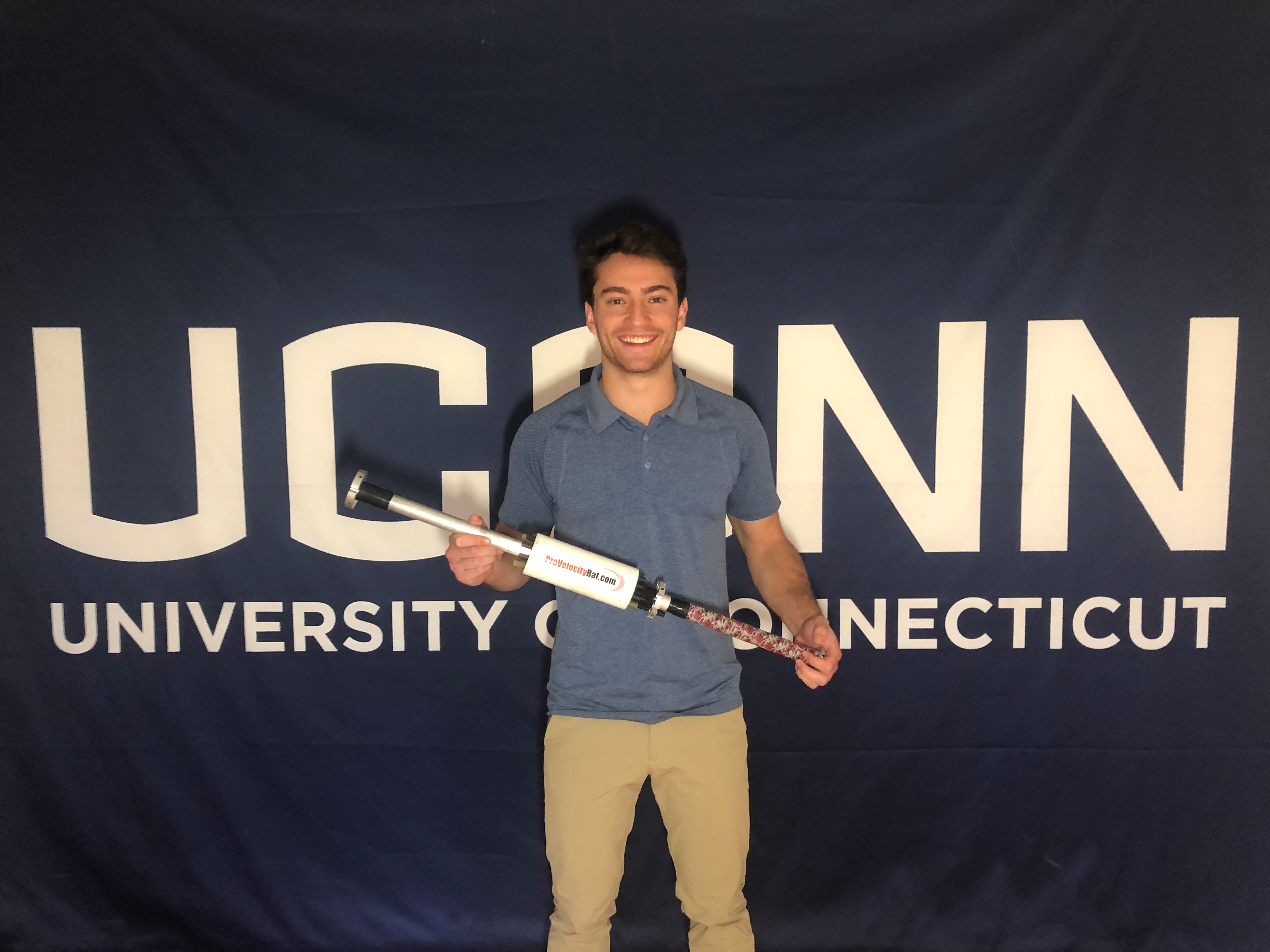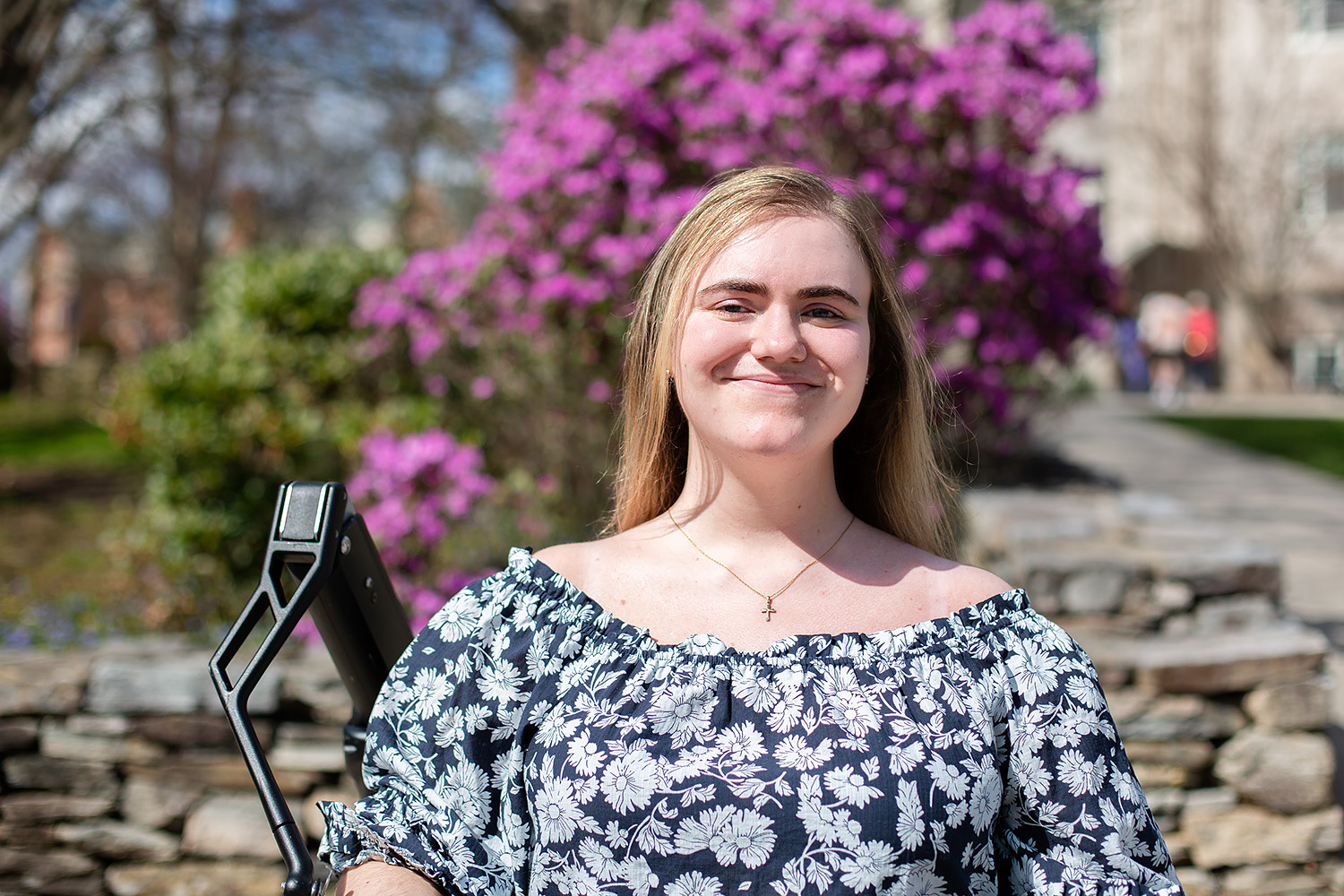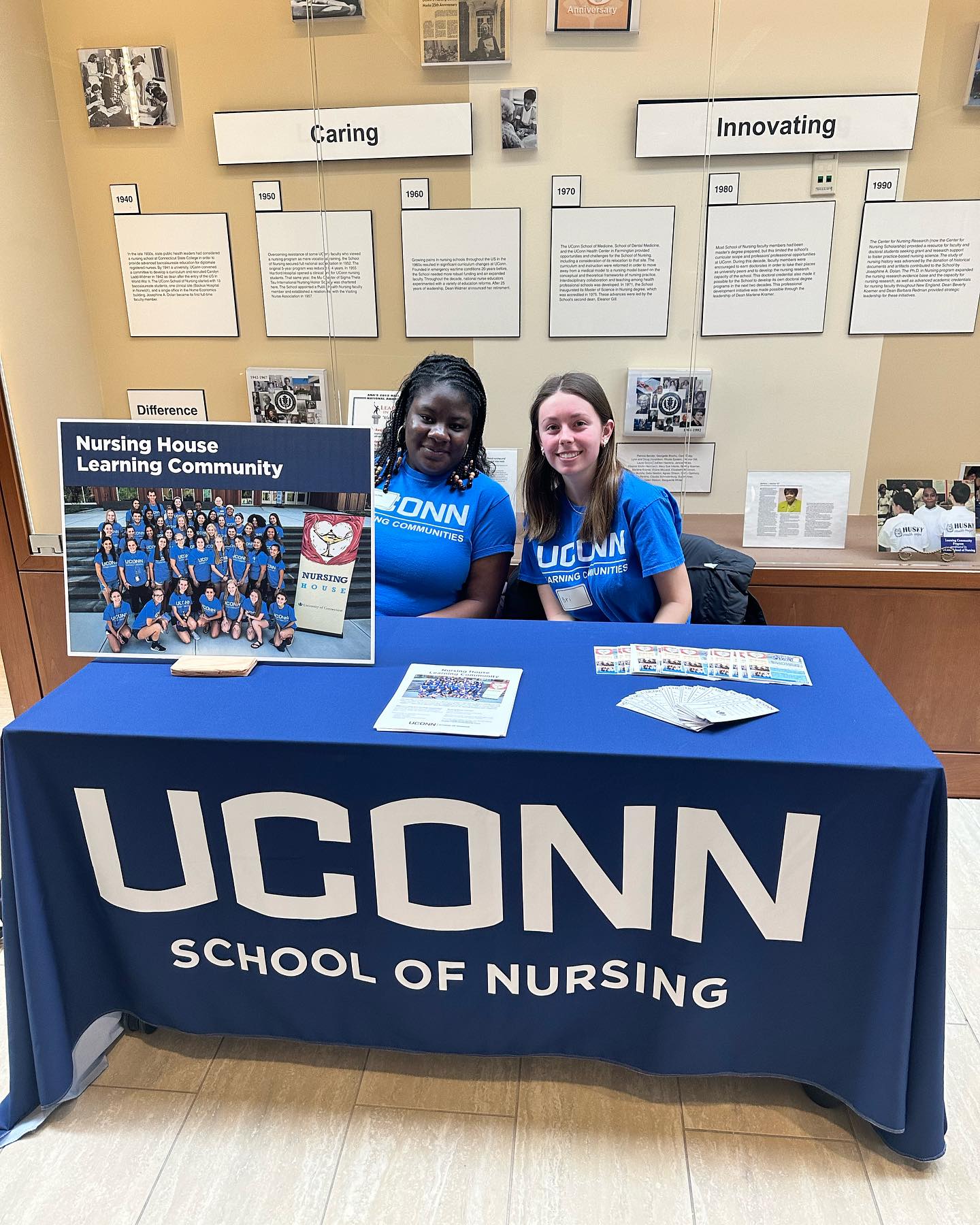Elijah Taitel ’22 (BUS), the creator of a revolutionary baseball-training bat with iterations for everyone from Little Leaguers to MLB players, won the Wolff New Venture Competition on Monday night.
“I am beyond excited and grateful to have won,’’ says Taitel, who was awarded a $20,000 prize to continue to advance his startup, Extra Base Sports. Taitel’s company competed with four other UConn-affiliated startups but the rivalry is a friendly one.
“The other teams are incredible. I have made so many great friendships that are so dear to me. I know the other teams are going to go on and accomplish amazing things because of the shear brilliance of the owners,’’ he says.
Taitel explained to the judges that he created the ProVelocity Bat after growing impatient with his progress as a high school baseball player, despite his parents’ significant investment in coaches and equipment.
“Hard work alone isn’t always sufficient to reach your dreams,’’ he says. Born to a family of entrepreneurs, Taitel created a bat with a sliding ‘power barrel’ that releases to the impact position when a batter achieves the desired speed. If the swing is incorrect or insufficient, the batter hears only one click. A double click indicates success. That audible feedback is one of the selling points of the bat, which has attracted professionals, private coaches and parents.
Taitel was one of 10 startup founders to participate in a “Summer Fellowship” business incubator last summer offered through the School of Business’ Connecticut Center for Entrepreneurship & Innovation (CCEI). With CCEI’s guidance, Taitel says he was able to make tremendous progress with his company and increase sales by 50 percent.
This month he introduced a youth bat for Little Leaguers, which represents the biggest segment of the training market. He is developing an app to augment the device, and looking at applying his technology to other sports.
“CCEI has provided support week-in and week-out that has allowed to progress as a businessman and take my company to new heights,” he says. But he adds that he’s also grateful to business partners, family and friends, including roommate Brett Muni who devoted a week to helping Taitel perfect his business pitch.
Wolff New Venture Competition Draws Best-of-the-Best
The Wolff New Venture Competition is the pinnacle of entrepreneurship competitions hosted by the School of Business. Jennifer Mathieu, director of CCEI, says the program has been successful in many ways.
“This competition has not only provided our startups with next-step funding, but it has provided them with connections that will help them move to the next level,’’ she says.
“This year we had five top-notch teams present the businesses that they have been working on with CCEI over at least the last year. We are pleased to have a great ecosystem that has supported these team,’’ she says. “We are impressed with the traction they have gained.’’
Other startups that participated in the competition were:
- Engagement Solutions: Some 14 percent of American school children require special education services. This startup is creating a HIPPA-compliant app designed to simplify and streamline the application process for parents.
CEO Shaleighne Cantner, a former special education teacher who has a Sixth-Year Degree in Educational Leadership and Administration from UConn, shared an inches-thick pile of paperwork required to apply for services. “I’m on a mission to offer a better, faster, more efficient and more streamlined system,’’ she says. “This is a problem that is desperate for a solution.’’
This year the startup competition showcased a new award based on audience choice. The $5,000 prize, sponsored by Fiondella, Milone and Lasaracina, a CPA firm based in Glastonbury, was presented to Engagement Solutions for best presentation.
- Reactomol: Developed by a team of UConn chemists, this startup strives to reduce the amount of toxic material that is used as a catalyst in the creation of prescription medication.
“This is an opportunity to make pharmaceutical manufacturing cleaner, simpler and more sustainable,’’ says professor Eugene Pinkhassik. The two-step process involves a new material that can be applied to existing processes and a molecular “Wiffle Ball’ that allows chemicals to pass through. Combined they bypass the need for extensive purification of some medications. The startup is already drawing interest from major pharmaceutical companies.
- QueenBee: Sophomore Raina Jain’s immune-support beverage, made with honey bee products, went from being manufactured in her parents’ kitchen a year ago to being sold in its first Whole Foods store in Avon last month. Beginning next month, the beverage will be sold in 110 additional Whole Foods stores, as well as in other smaller shops. For every bottle sold, she plants a pollinator tree. Her company proves that profitability and sustainability are compatible, she said.
Jain is test-launching another healthy alternative, a “pixie stick’’ with powdered immune-support ingredients.
- InPrint Bio: Thirteen percent of U.S. women develop breast cancer in their lives. Of those who seek reconstruction using the most popular method—a FLAP transfer that removes skin and tissue from the abdomen to form a new breast—one in three face serious medical complications from the secondary surgery.
CEO Jacob Quint explains how the BioStylus, a handheld muscle-regeneration device, would allow plastic surgeons to use a “biological ink” to support the abdominal wound and help avoid complications. The device is so novel that the company has applied for breakthrough designation with the FDA, which could take years off its path to market. The team is hoping it will become the new standard of care, and may eventually be helpful in treating military-related injuries and for patients involved in motor vehicle accidents.
The Wolff New Venture Competition honors Tom and Bette Wolff, who were strong supporters of entrepreneurship at UConn. Years ago, Tom, an entrepreneur who owned five businesses at once, brought in celebrities and business superstars to speak with students and encourage them to consider starting their own businesses. Since his death, his three children have taken on that mission, culminating in the creation of the startup competition.
“This year I think we have the best five presenters that we’ve seen,’’ says son Greg Wolff. “Over the years, several of our winners have gone on to forge successful companies and some have sold their businesses for substantial sums. Our hope again this year is that the entrepreneurs who are part of the competition will go on to achieve success in the Connecticut area.’’
The companies are being run by young leaders who are going to drive the economy, agrees his brother, Gary Wolff. “It’s exciting to see your determination to make your businesses work,’’ he told them.
During the presentation on Monday, many past participants spoke of their recent achievements and encouraged the newer UConn teams to preserve. Last year’s winner, Peter Goggins, developer of Pisces Atlantic fish feed, reported that his company has continued to thrive and attract a broader customer base. He said the CCEI team is always there to support him and help him reach expert consultants, even on short notice.
Being an entrepreneur is hard work but is also extremely rewarding, he says.
“It’s a humbling experience when people trust you enough to give you their business,’’ Goggins says.



